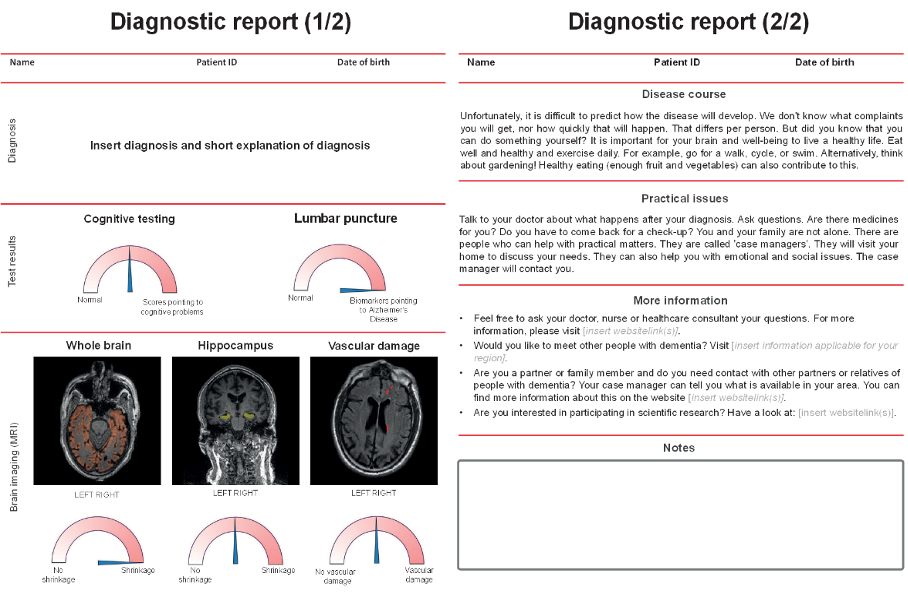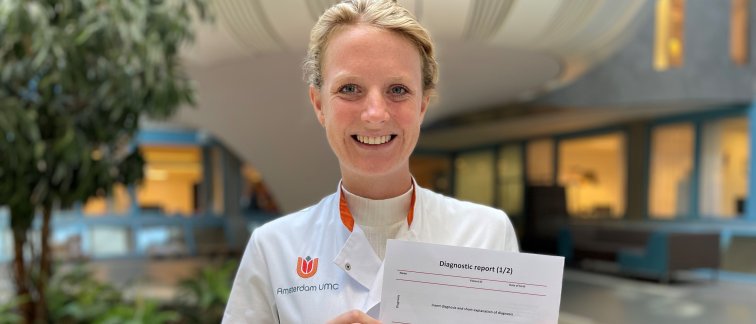In memory clinics, many different tests are often done to make a correct diagnosis for each patient. It is known from previous research that patients and their care partners feel that the test results are not always carefully clarified. From oncology studies, for example, the researchers know that a hard-copy results page can improve understanding and remembering the information given. At this moment, a diagnostic report page including test results for the memory clinic does not yet exist. In the DAILY study, Aniek and her colleagues investigated, together with patients and their care partners, what this page could look like.
Diagnostic report to use in the memory clinic
By designing the diagnostic report together with patients and their care partners, the researchers have taken a first step towards using a results page in the memory clinic. The ultimate goal is to improve communication between doctor and patient, so that patients and their care partners better understand what is happening.
Together with patients & care partners
The design of the diagnostic report is patient-oriented, as it is based on the information patients and their care partners find most important. The page was designed in focus group meetings with a number of patients and their care partners. Finally, the protoype of the diagnostic report was presented to a larger group of patients and their feedback of this design has also been collected.
 The design of the hard-copy diagnostic report.
The design of the hard-copy diagnostic report.
Design of the diagnostic report
The image above shows the design of the diagnostic report. The overview includes the diagnosis, followed by a short explanation. Next, the various test results are shown, i.e., the results of the memory tests and the epidural. The respondents also desired to see pictures of their own brain scan. The second page contains information about the course of the disease, tips to keep the brain healthy for as long as possible, practical matters, and where to find more information about the disease. In a follow-up study, Aniek's team is currently testing this page in a number of memory clinics in the Netherlands.
Word of thanks to respondents
Aniek would like to thank all patients and their care partners who participated in this study. Without them, it would not have been possible to take this first step towards using a results page in the memory outpatient clinic.
Partnerships and publication
This project is co-financed with a PPP allowance made available by Health-Holland, Top Sector Life Sciences & Health, to the Collaborative Health Funds to encourage public-private partnerships.
Read the publication in the Alzheimer's & Dementia: Diagnosis, Assessment & Disease Monitoring journal.

